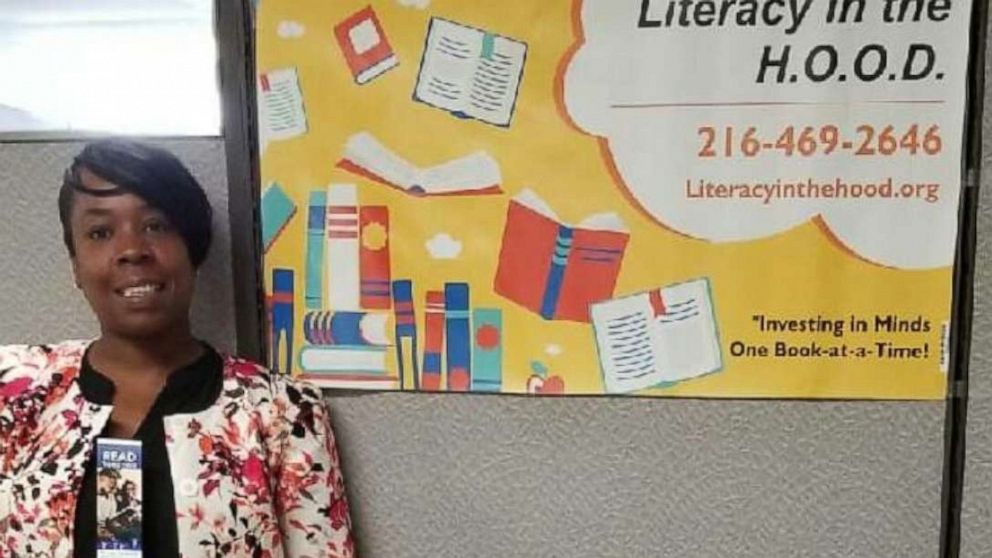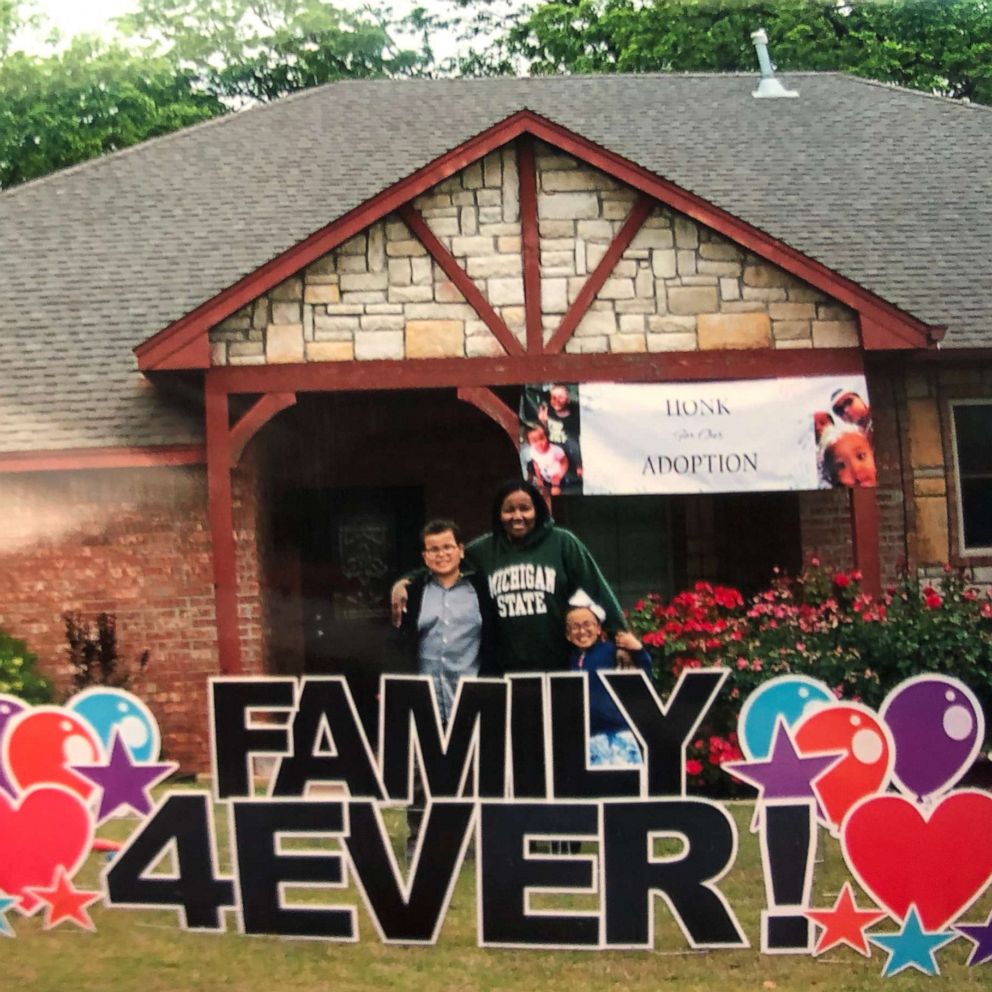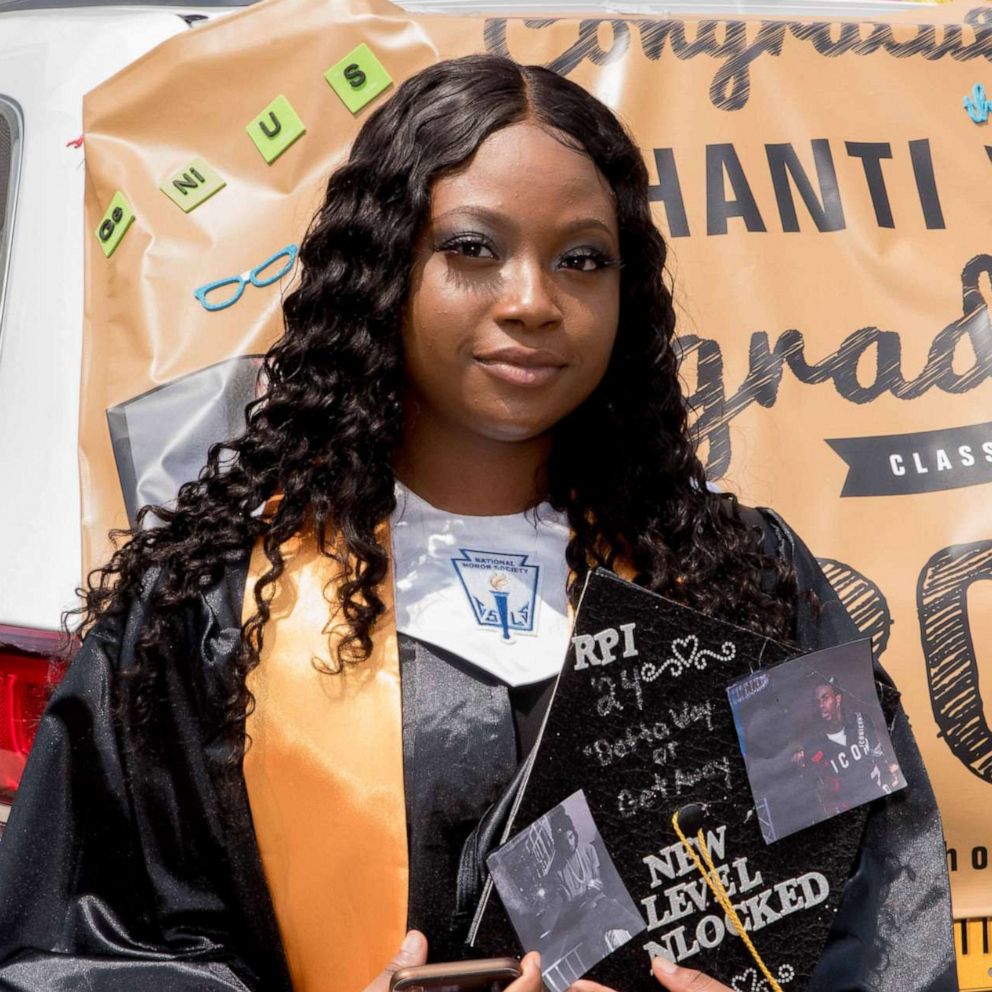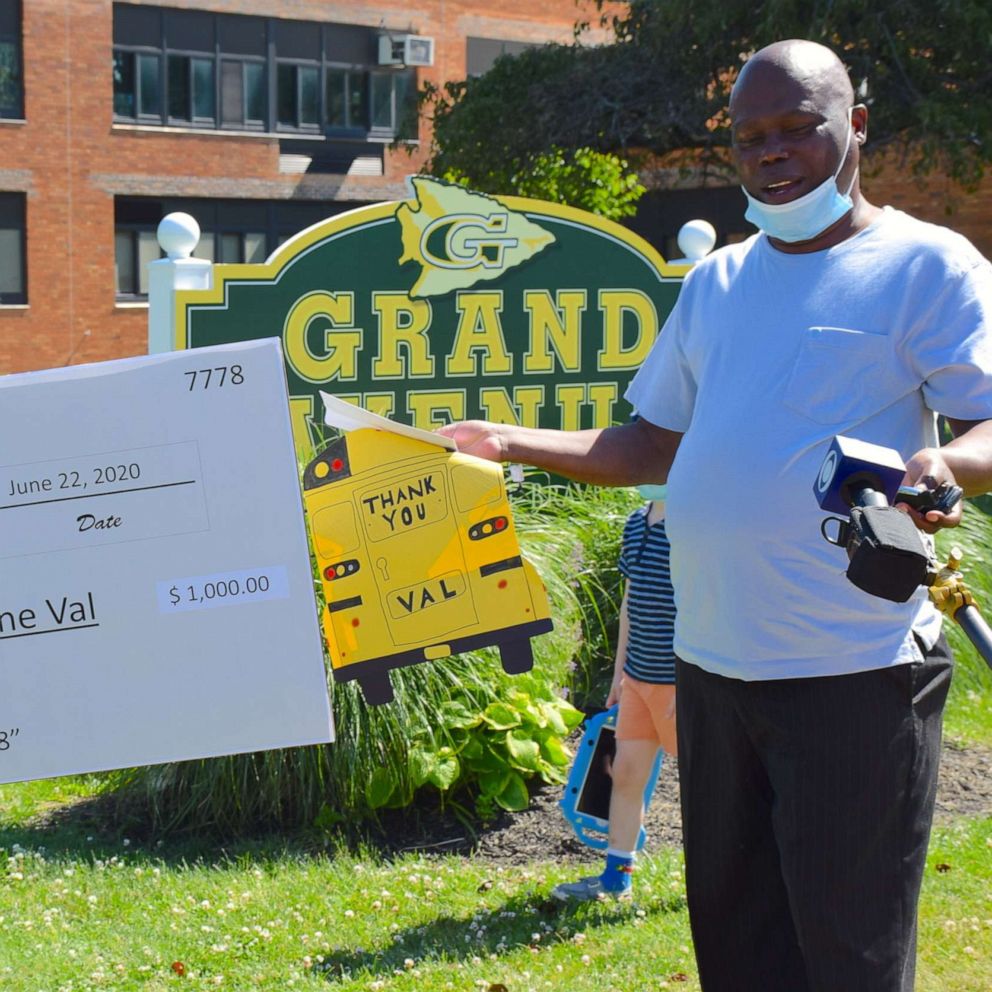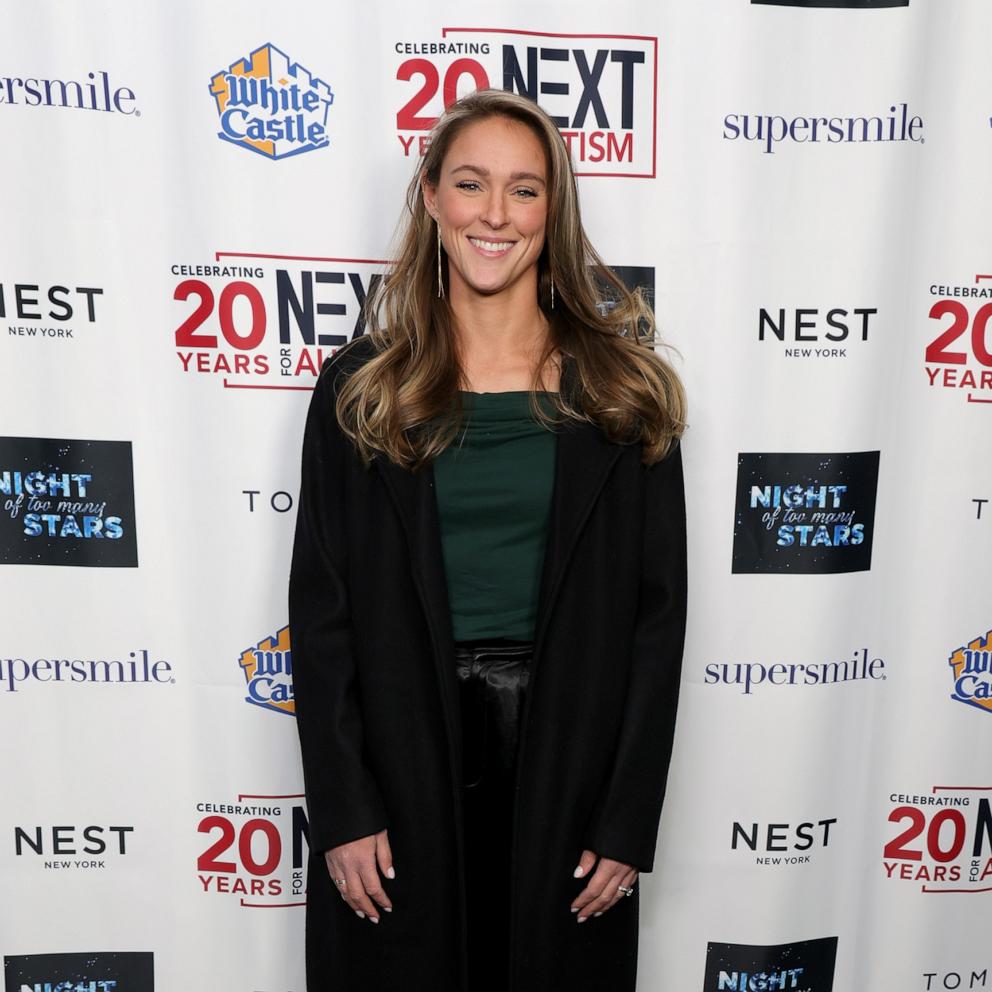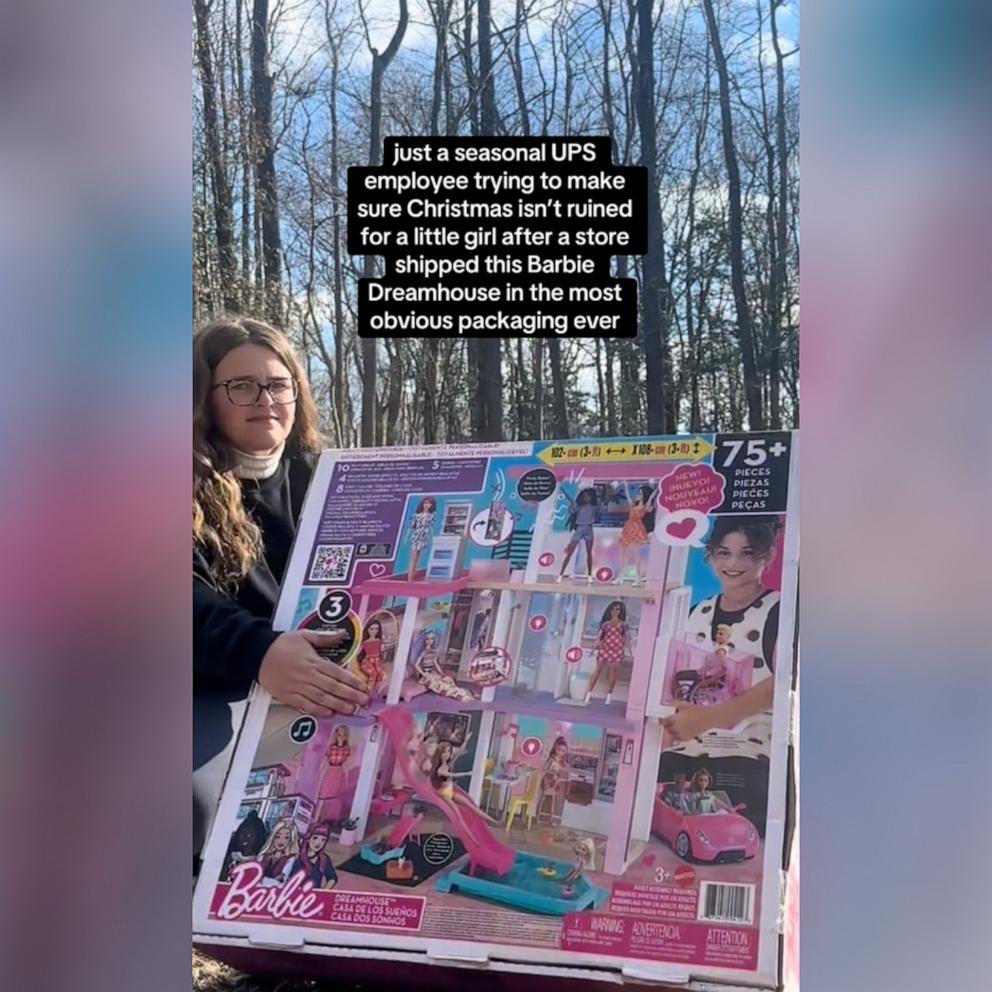Mom hands out thousands of free books to kids to help prevent 'corona summer slide'
A single mom in Cleveland is spending the summer handing out free books to kids to help prevent what she calls the "corona summer slide," a concern that students will fall further behind in learning over the summer break.
"[Students] were out of school for the [coronavirus] pandemic and then summer," Chrishawndra Matthews told "Good Morning America." "We’re going to have a bigger pandemic in September when these babies go back to school."
Matthews, 47, devotes her time and money to handing out free books to kids in underserved neighborhoods in Cleveland through her non-profit, Literacy in the H.O.O.D., which stands for helping out our disenfranchised.
She started the nonprofit more than two years ago after going through her own struggle to get books and reading help for her now 9-year-old son Derrick. Matthews said she was angered by the disparities she saw between the reading resources for inner city kids versus kids in the suburbs, and the subsequent gap in language and educational achievement.
"Derrick started reading at three and there were no resources to strengthen his reading in the inner-city," she said. "We have the library and something they call story time but here the librarian is dealing with behavior for three-quarters of story time and there’s the condition of the library. If I drive just a few lights up the road and take him to a suburban library or a county library, we went from just going to the library to having an experience."
"I'd find myself driving to the suburbs to find literacy and reading programs that would be adequate for a 3-year-old," Matthews added.
Determined to help not only her son but all kids in need in Cleveland, Matthews, who runs her own cleaning service, began buying books with her own money and collecting donated books to hand out to kids.
She has focused on making sure the books she donates are accessible to kids and their parents. Matthews said she will stop parents on street corners when she sees them with their kids and give them a book and talk to them about the importance of reading with their child for at least 15 minutes per day.
"So many times when you get something for free you have to go through so many hoops to get it. I try to take away all the hoops," she said. "I've literally just been showing up [with books]."
During the coronavirus pandemic that closed schools and forced people to stay at home, Matthews has still found ways to bring books to kids.
When schools were offering free lunches for students, Matthews would search on school websites for the pickup locations and then show up with books to hand out along with the lunches.
As recreation centers and parks have started to reopen in Cleveland, Matthews is there with books to distribute.
She also put out a call for people to use their time at home during the pandemic to clean out their kids' book shelves and donate unused books.
"We were meeting at gas stations and corners with gloves and masks on," Matthews said of the donations. "When I brought the books home, I’d wipe them all down."
"Even though other places closed during the pandemic, we were able to still hand out books," she said. "We are going in some areas that other people are not really going to go and they’re not really thinking about and they’re probably scared of."
Matthews said she is particularly worried about the kids she serves during the pandemic and over the summer because many of them do not have access to computers and the Internet and do not have examples of reading at home.
"If you’re in a family that reads, over the summer, you’re at home reading," she said. "If you’re in a family or environment that there is no reading, over the summer those children will not be reading."
The summer slide, also known as summer learning loss and summer setback, on average can set students’ achievement scores by one month’s worth of school-year learning, research shows. When it comes to reading in particular, middle-class students tend to show improvement in skills while lower-income students tend to experience loss, according to a 2017 research review by the Brookings Institution, a nonprofit public policy organization.
Research looking at a potential coronavirus slide suggest students could return to school this fall with "roughly 70% of the learning gains in reading relative to a typical school year," according to the Northwest Evaluation Association (NWEA), a non-profit research organization that develops student assessments.
Matthews said she is committed to helping to close that gap, handing out more than 16,000 books so far this year. She is now raising money to buy a van so she can transport even more books to kids around Cleveland.
Matthews is helped in the effort by her son Derrick, who started his own organization, Boys Do Read, and is always reading while he and Matthews drive to deliver books.
"Derrick is in the car, he’s reading and I know he got his 20 minutes in," she said. "If parents can find 15 to 20 minutes, it will make such a difference in their child’s life. Especially over the summer, it will be such a difference."
